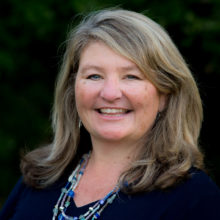he following is Mary Ann Wolf’s “Final Word” from the Feb. 6, 2021 broadcast of Education Matters: “Equity and Education Policy.”
Before, during, and after COVID, equity has been and will be at the core of our work. It is important to note that equitable does not mean equal. Achieving equitable access to high-quality education for all requires that every child has what they need to be successful, that oppressive systems are dismantled, and structural inequities are redressed.
We can begin this process by working toward the goal of ensuring that all children have equitable access to a sound basic education, as defined in the Leandro case and as guaranteed by our State Constitution. Equity is at the heart of the Forum’s policy and programmatic work and is both the overarching umbrella and the common thread throughout each of our Top Educational Issues. Last week, we featured the panelists from our Eggs & Issues event focused on the role that equity must play in education policy decision making.
State Rep. Ricky Hurtado, D-Alamance, reminded us that as we look ahead to this year, lawmakers will grapple with the reality that we have not been meeting our constitutional obligation to ensure every student has access to a sound basic education and that there are important ways our state leaders must act to remedy this situation that include both innovations as well as strong investments in our public schools.
Reagan Razon, a student leader who is a member of the Wake County Black Student Coalition, explained her work toward ending the systemic racism in our schools, impressing upon us that as we all work together toward its end, stronger bonds will form between our students, teachers, and communities.
Maggie Murphy, a teacher in Alleghany schools, impressed upon us that students of color deserve to see more teachers of color in their classrooms but also must see themselves represented in the literature and the history that we teach. Being intentional about what we say and how it’s written when teaching our American and global histories is the path forward for ensuring progress and ensuring that our communities of color can feel assured that their places in history are given the respect and debate that they deserve.
Dr. Anthony Graham, the provost at Winston Salem State University, told us that while we’ve been busy at work and carrying on the business of our lives, our schools have been resegregating, both racially and economically.
Since 1996, Dr. Graham said the number of segregated schools in this country has doubled, and the schools that the students in our communities of color must attend are also under-resourced.
Our schools must be a place where we offer all our students a robust curriculum with AP and advanced curricular options. And our schools must also be places where we teach our students about equity, as Dr. Graham said. There must be places where we teach students how to share power and resources to create a society that is just and equitable.
Instead, Dr. Graham said, we are teaching our students in the very design of our public schools about segregation, about inequities, and about oppression, and how to create and maintain a system that disenfranchises people through policies and budgets.
Hurtado, Razon, Murphy, and Dr. Graham remind me that we have so much work to do together. But if we acknowledge our deficiencies, recognize our strengths, and identify paths forward that support the success of all, lifting up those who need greater support with more targeted resources and visionary leadership, we can accomplish so much.


